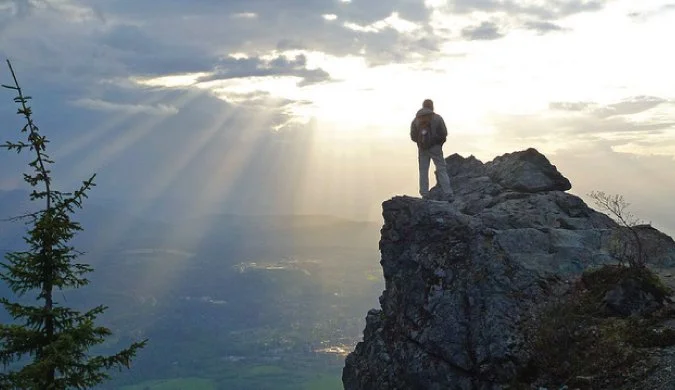The other night I had what would rightly be classed as a nightmare. I found myself in a wilderness area with no other humans within a thousand miles. I had minimal food, enough water, but no transportation or way of getting back to civilization. I was stuck with myself, forever. Even the local critters weren't coming near. The sense of panic at being stranded without any possible companionship was terrifying, and I woke up very disoriented. My wife's immediate presence slowly eased me back into the "real world."
The dream was undoubtedly spawned by a TV reality show called Alone, where ten hearty individuals must survive in a harsh wilderness separated from their companions. In other words, each person is dropped at an isolated location at least five miles from the nearest competitor. They carry in rudimentary items such as a flint, a tarp and a tool like an ax or shovel. The last man/woman standing, or staggering, who hasn't tapped out, wins half a million bucks.
Having watched almost three seasons of this show, what becomes most apparent is that the harshest challenge is not lack of food, bad weather, or predatory animals such as cougars, bears and wild boar. The biggest obstacle to success, to staying for months at a rudimentary campsite, is lack of human interaction. Competitors do leave early because of injury, lack of sustainable food sources or fear of predators, but loneliness seems to be the biggest take down. Humans are social animals, and apart from the occasional hermit or psychotic loner, we all need to hear that human voice other than our own.
The challenge of Alone is one thing, but can you also be isolated when surrounded by people? Of course. The mental ability to connect with others can be a fragile construct. That connection depends on shared experience and behavioral symmetry. I would rather listen to a radio station where actual humans introduce the music as opposed to a satellite radio service where the music just appears without context. If I am in a sports stadium with 50,000 other fans, I can feel a real connection despite not knowing any of them individually. On the other hand, I can be in the same stadium, going through personal turmoil, and feel totally alone, completely isolated. Context is important.
Family, hopefully, provides a stability which can alleviate feeling alone. Healthy familial relationships are often an anchor in a confusing world. However, when such relationships are dissolved through discord or death, the feeling of isolation can be multiplied exponentially. When a spouse dies after many years of a strong marriage, the remaining partner must often fight through crushing depression. Is there a quick fix when one is drowning in personal loss or feeling walled off from everyone else?
Alcohol and/or drugs can be a short term (and often fatal) solution to the angst of isolation, but there must be a better way. For most, the best shot at achieving continued connection with "our better halves," and others, is a deep spiritual foundation. Believing in something bigger than yourself can provide the comfort which gives this life meaning and direction. Faith is the ultimate upper.
In just over fifty days, the last survivor remained for the first two seasons of Alone. Two different men who put up with severe depredation and a corrosive isolation. In both cases they clung to and were sustained by an abiding faith in a personal God. Two Christian men who knew that they were never truly alone. That the world could take such comfort.

